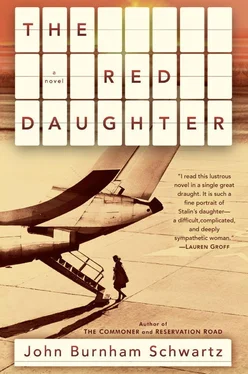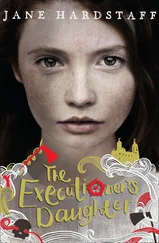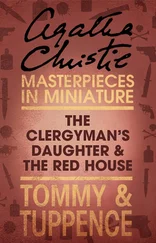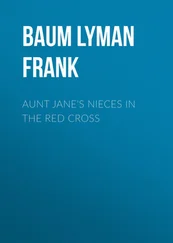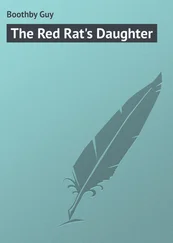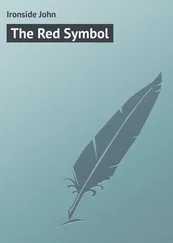John Schwartz - The Red Daughter
Здесь есть возможность читать онлайн «John Schwartz - The Red Daughter» весь текст электронной книги совершенно бесплатно (целиком полную версию без сокращений). В некоторых случаях можно слушать аудио, скачать через торрент в формате fb2 и присутствует краткое содержание. Город: New York, Год выпуска: 2019, ISBN: 2019, Издательство: Random House, Жанр: Историческая проза, на английском языке. Описание произведения, (предисловие) а так же отзывы посетителей доступны на портале библиотеки ЛибКат.
- Название:The Red Daughter
- Автор:
- Издательство:Random House
- Жанр:
- Год:2019
- Город:New York
- ISBN:978-1-40006-846-3
- Рейтинг книги:4 / 5. Голосов: 1
-
Избранное:Добавить в избранное
- Отзывы:
-
Ваша оценка:
- 80
- 1
- 2
- 3
- 4
- 5
The Red Daughter: краткое содержание, описание и аннотация
Предлагаем к чтению аннотацию, описание, краткое содержание или предисловие (зависит от того, что написал сам автор книги «The Red Daughter»). Если вы не нашли необходимую информацию о книге — напишите в комментариях, мы постараемся отыскать её.
The Red Daughter — читать онлайн бесплатно полную книгу (весь текст) целиком
Ниже представлен текст книги, разбитый по страницам. Система сохранения места последней прочитанной страницы, позволяет с удобством читать онлайн бесплатно книгу «The Red Daughter», без необходимости каждый раз заново искать на чём Вы остановились. Поставьте закладку, и сможете в любой момент перейти на страницу, на которой закончили чтение.
Интервал:
Закладка:
Any hour now—with datelines and deadlines I have lost track—Yasha, five feet, seven inches tall and a month before his fifteenth birthday, will arrive at his beloved Friends’ School in Saffron Walden, which has offered its former student a very generous scholarship for the remainder of his studies there. It was insisted by the Soviets that he travel ahead of me, bearing his brand-new American passport and exit visa procured at the U.S. Embassy following my meeting with Comrade Ligachev of the Central Committee. (“The Motherland will survive without you,” he told me. “The question is: Will you survive without the Motherland?”)
I am going to live in London this time. My old Cambridge neighbor Fiona Driscoll, lover of Irish breakfast tea and action films, has kindly arranged for me to stay in a North Kensington charity home for “distressed gentlefolk and indigent people,” where I will have a single room and shared kitchen and also a shared bathroom with other distressed and indigent residents. Furniture will come from a charity truck, not the biggest humiliation of my life. This English society, funded by a nice man with a “Sir” to his name, will pay sixty pounds a week to cover my lodging, food, and so on. Fiona cheerily reports, with her ability to smell roses in winter, that my fellow boarders include “a Chinese cook, a reformed alcoholic, and a gay man of twenty-four.”
I will meet them all. I am not afraid. But it is all a black mirror somehow, what is happening. This stopover in Zurich. This Swiss plane. This long look down, once again, through a small window.
And here, just in time to keep away catastrophic depression, comes the pretty Swiss Air stewardess with extrafine stockings, asking would I like another vodka martini?
You bet I would.
Where are you now, Mr. Staehelin? What have I done to you? Mrs. Staehelin toasts you anyway. You and I were here before, remember? It was you who brought me across this ocean. You spread your proverbial jacket over the water so I could make the crossing like a lady. I was no lady, but I enjoyed every moment of the journey.
Your loving SvetlanaEDITOR’S NOTE
The teashop doorbell tinkles softly, and a squat, heavy-set old woman, with rheumy eyes and broken red veins ribboning her cheeks, peers suspiciously inside. It is a crisp winter morning in a remote West Country seaside village, and the place is deserted. Even so, she pulls down her black beret, raises the collar of her camel overcoat, and requests a table in the most conspiratorial corner. Svetlana Evans (née Stalin)—her voice a strange mixture of drawing-room English and East European idioms—says, “Tell me please, how did you find me here?”
—Daily Mail, 15 February 1996LETTER
8 April 1996
Cornwall, England
Dear Peter,
You were with me just a few short days ago—such surprise, and so strange to write it now—so perhaps this letter reaches Princeton before you. Would you give my hugs to your Jean, who has not been little for many years? She will not remember crazy “Aunt Lana” from long ago, but I will never forget my first American summer with your family on Block Island. Such stories in the sands of Time.
I must apologize for not allowing you to see the flat where I was living. No matter, for I have again moved house just since you were here—another charity-run flat in another Cornish village, which are all much the same, some closer to the sea than others. Closer preferably, for salt air does my mind good even if cold and damp make my joints creak and my nose run. Yasha says I have “thrown in the towel” by living unknown and poor in this boring West Country England of soggy tea parlors and sagging boats. He doesn’t enjoy visiting me in these surroundings compared with his London life with girlfriend and art classes. So when you talk about your Jean I understand. You and I have reached ages when silences we have known in life have finally taught us that words alone are not always the answer. Sitting across from you in the pub under that stuffed one-eyed bird neither of us could identify, I took your hand and held it, which you let me do with the same shy courtesy I remember from our first hours together on our very first journey.
And yet, my love, do not become too quiet to yourself in your late years. This idea you still carry that despite noble exertions you have not lived some better version of yourself—or rather, that you have lived too well some lesser version you believe you were handed down by your wounded father—this does not do you justice. Your loyalty to Martha (to say nothing of your profession) stands for more than this. Choices you made and must now try to understand while there is time, the strength of the man you are who made these choices and what he means to you. I too have made choices and have a contradictory strength, which sometimes frightens these Cornish villagers, who have no real idea who I am. Perhaps, in my case, this is merely the natural product of permanent exile: such stateless state in which my dear aunt and uncle and all the disappeared members of the Alliluyev family lived, but which I have earned most of all through my failure, ever since the loss of my mother and my father’s turning against me, to feel at peace anywhere in this world.
Dear Peter, I confess there are times now when my mind feels like a fist clenching (you taught me this word, remember?) itself too tightly, so that thoughts are pressed one against another and all the air, all the freedom, gets squeezed out and I realize to my dismay that in the end I am holding nothing. The result is what you found on your visit. How my words not in Russian cannot manage to express to an urgent enough degree what it is like inside this fist of my being. I could not describe to you how our time that afternoon turned so short. Like winter light, you were gone before the day was finished. But first you walked me out of the pub and across the road. People who saw us must have thought you were helping some bag lady, but you didn’t mind. Arm in arm we crossed the green with its ancient stone well—dry now—and continued all the way to the edge of town and the river that has flowed through here since the beginning of time, and I said, “If this is the last we ever see each other—” And you cut off my words saying, “It won’t be. We will see each other again.” And you sounded so certain that all the rest of that day and evening, after you left me there by the river, I believed you.
Have you ever read Nabokov’s autobiography: “The years are passing, my dear, and presently nobody will know what you and I know.”
My love always, SvetlanaEDITOR’S NOTE
I didn’t want to leave her standing alone by the river. I didn’t want to leave her at all. I wanted to walk her back to her flat as the sky began to fade and the chill came down; to see her safe inside, where she would stay; someplace where I would be able to find her again.
Because I would find her. I always would, somehow, no matter how much time passed between us. I believed this.
But she would not let me walk her back to her flat. And I had a plane to catch; a wife to return to. And so, in the end, I left her there: an old woman, facing away across a river in a foreign town, staring at ghosts.
It was the last time I ever saw her.
LETTER
12 November 2010
Spring Green, Wisconsin
My dearest Peter,
What can I say to comfort you after such sad loss of your Martha? I am not the person she would have chosen to give such comfort, this we both know. And yet one way and another, however unlikely, my life and hers did cross and a kind of intimacy discovered us where we were hiding.
Do not punish yourself. This is what I wish to say: anyone who has never committed mistakes of the heart has never committed himself bravely enough to life. So yes, you perhaps had more courage than either of you expected. Did she have as much as you? I don’t know. But I know that you did not leave her. You accompanied her until the end. This is much more than I have ever done for another.
Читать дальшеИнтервал:
Закладка:
Похожие книги на «The Red Daughter»
Представляем Вашему вниманию похожие книги на «The Red Daughter» списком для выбора. Мы отобрали схожую по названию и смыслу литературу в надежде предоставить читателям больше вариантов отыскать новые, интересные, ещё непрочитанные произведения.
Обсуждение, отзывы о книге «The Red Daughter» и просто собственные мнения читателей. Оставьте ваши комментарии, напишите, что Вы думаете о произведении, его смысле или главных героях. Укажите что конкретно понравилось, а что нет, и почему Вы так считаете.
